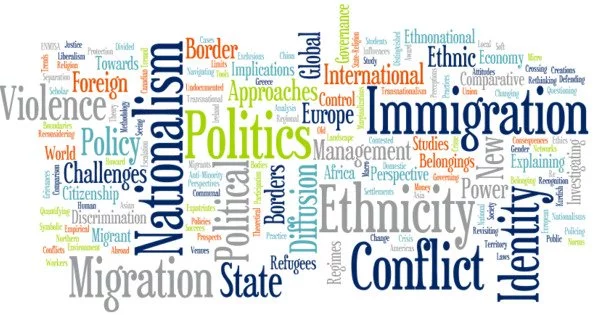Ethnic nationalism is a political theory or movement that emphasizes the value of ethnicity, culture, language, and history as the foundation of a nation’s identity and sovereignty. It is a type of nationalism in which the nation and nationality are defined in terms of ethnicity, with an emphasis on an ethnocentric (and in some cases an ethnocratic) approach to various political issues relating to national affirmation of a particular ethnic group.
It differs from civic nationalism in that it is founded on shared political ideas and institutions rather than ethnicity. “Nations are defined by a shared heritage, which usually includes a common language, a common faith, and a common ethnic ancestry,” according to ethnic nationalists. Other ethnicities may be considered second-class citizens.
Key features of ethnic nationalism include:
- Ethnically Homogeneous Nation: Ethnic nationalists think that a nation should be made up of a single ethnic group. They may push for policies that prioritize or defend the interests, culture, and language of the dominant ethnicity.
- Cultural Preservation: Ethnic nationalism advocates frequently highlight the preservation and promotion of their culture, customs, and legacy. They may be concerned about external influences diluting or assimilation of their culture.
- Exclusive Identity: Exclusionary ethnic nationalism defines who belongs to the nation based on ethnic grounds. Individuals or groups who do not share the dominant ethnicity may face exclusion or prejudice as a result.
- Historical Narrative: Ethnic nationalists often construct a historical narrative that emphasizes the shared history of their ethnic group and its importance in the formation of the nation. This narrative can be used to justify territorial claims and political goals.
- Nationalism and Separatism: Ethnic nationalism can lead to demands for autonomy or even secession, particularly in multi-ethnic or multi-national states, as different ethnic groups may have conflicting national identities and aspirations.
Scholars in diaspora studies widen the concept of “nation” to include diasporic communities. Sometimes the phrases “ethnonation” and “ethnonationalism” are used to describe a notional collective of dispersed ethnics. Ethnic nationalism can become a form of pan-nationalism or macro nationalism when defined broadly, as in pan-Germanism or pan-Slavism.
Ethnic nationalism is typically contrasted with civic nationalism in scholarly literature, though this difference has been questioned. In Eastern Europe, ethnic nationalism has always been the determining type of nationalism.
















